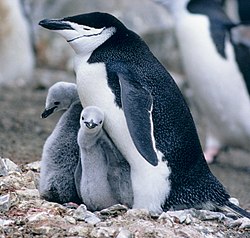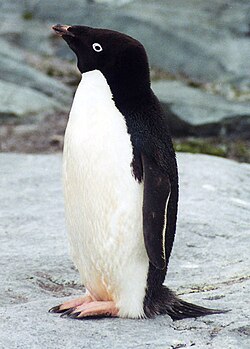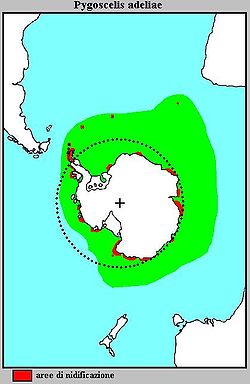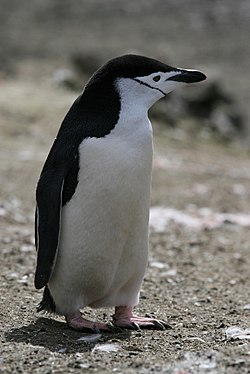Top Qs
Timeline
Chat
Perspective
Pygoscelis
Genus of birds From Wikipedia, the free encyclopedia
Remove ads
The genus Pygoscelis ("rump-legged") contains three living species of penguins collectively known as "brush-tailed penguins".[2]
Remove ads
Taxonomy
Summarize
Perspective
Mitochondrial and nuclear DNA evidence suggests the genus split from other penguins around 38 million years ago, about 2 million years after the ancestors of the genus Aptenodytes. In turn, the Adelie penguins split off from the other members of the genus around 19 million years ago.[3]
- Extant species
A 2020 study found that the gentoo penguin may actually comprise a species complex of 4 similar but genetically distinct species: the northern gentoo penguin (P. papua), the southern gentoo penguin (P. ellsworthi), the eastern gentoo penguin (P. taeniata), and the newly-described South Georgia gentoo penguin (P. poncetii).[7][8] However, in 2021 the International Ornithological Congress recognized these as being subspecies of P. papua.[9]
A study has estimated that there are about 3.79 million pairs of Adélie, 387,000 pairs of gentoo, and 8 million pairs of chinstrap penguins in their particular areas,[10] making up 90% of Antarctic avian biomass.[11]
- Fossil species
- Pygoscelis grandis (Bahía Inglesa Formation, Late Miocene/Early Pliocene of Bahía Inglesa, Chile)
- Pygoscelis calderensis (Bahía Inglesa Formation, Late Miocene of Bahía Inglesa, Chile)
- Pygoscelis tyreei (Pliocene of New Zealand)
The latter two are tentatively assigned to this genus.
Remove ads
References
Wikiwand - on
Seamless Wikipedia browsing. On steroids.
Remove ads







